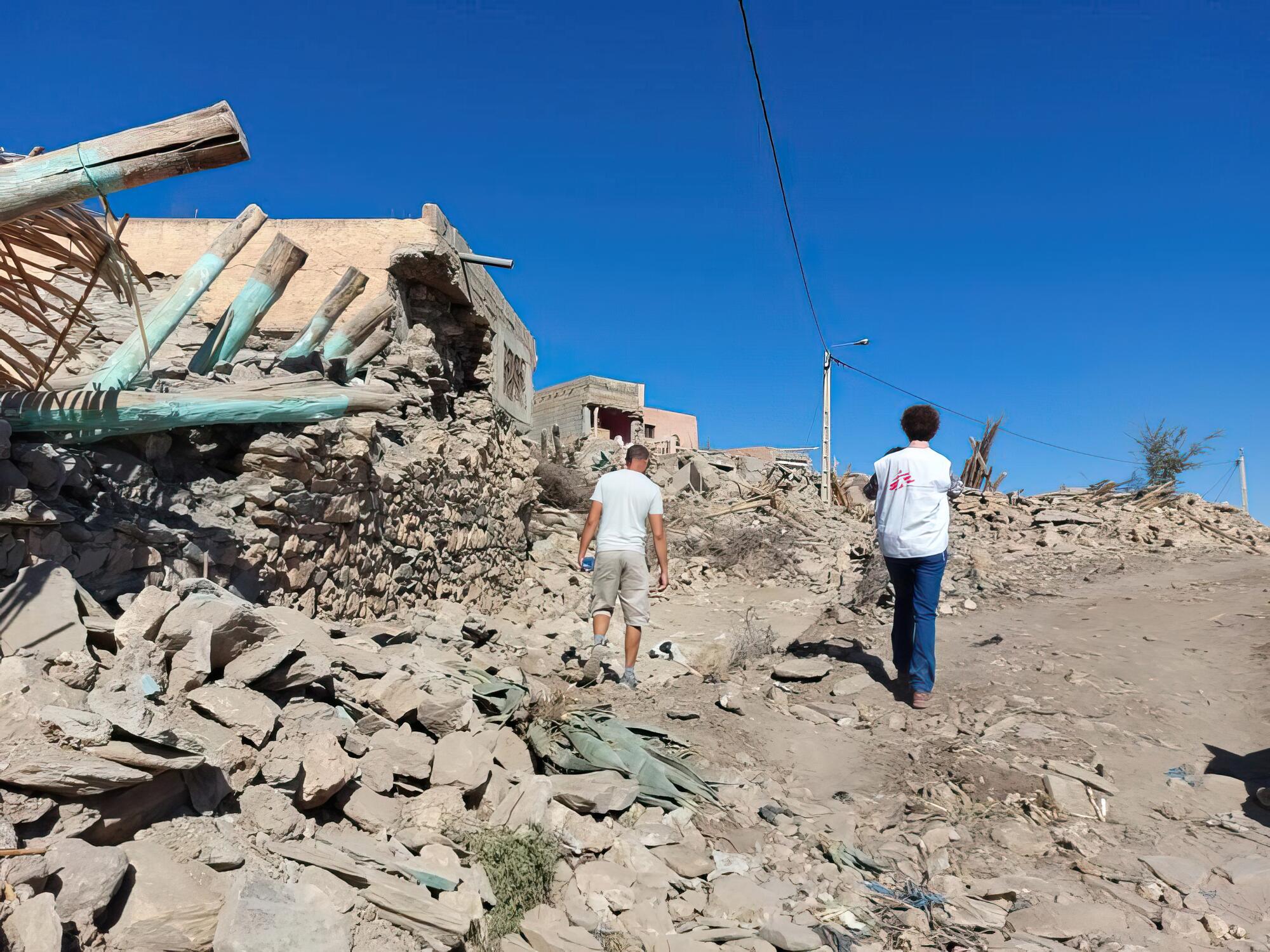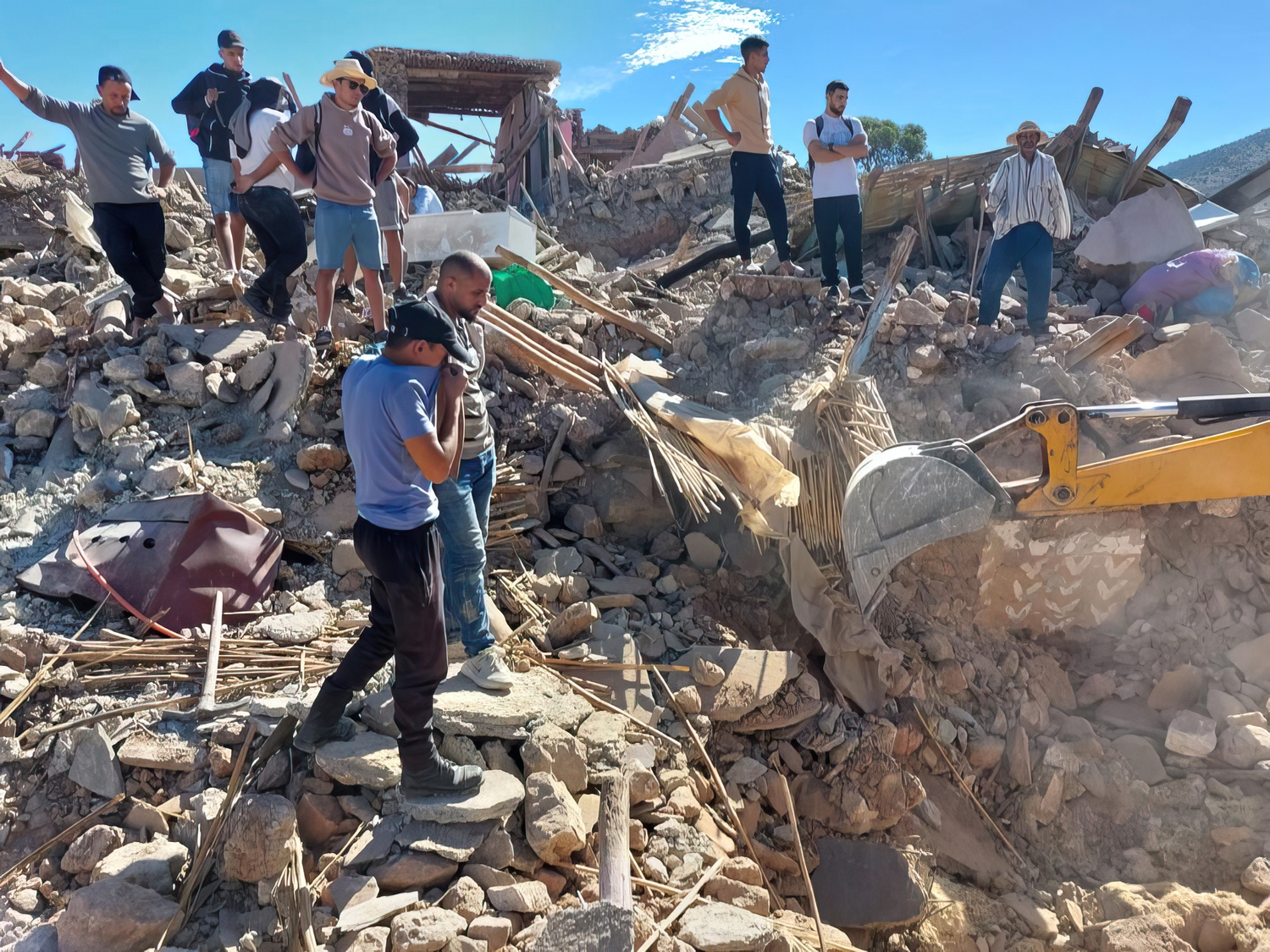Morocco: MSF headed to earthquake-struck areas to assess local needs



[Update on 14/9]
This week, an MSF team travelled to Morocco's Chichaoua Province, located in Marrakesh-Safi, to evaluate the needs of the people living in the isolated villages affected by the strong earthquake that struck the country on the night of Friday to Saturday 8 to 9 September 2023.
Carlos Rubio, MSF’s emergency coordinator reports on the situation:
“Most of the houses in the small villages we visited were damaged because they were constructed out of flimsy materials like mud. Significant numbers of people have been killed and injured. In addition, the roads have been impacted. However, the immediate and urgent medical and humanitarian needs were met in the days following the emergency thanks to the massive mobilization of the Moroccan authorities and local civil society.
Patients who required medical attention have already been transferred to the Chichaoua and Marrakech central hospitals. Additionally, the majority of the residents of the affected villages had already received initial aid in the form of food, water, blankets, tents, and other necessities. We might want to look into the scarce availability of mental health services, as a gap we identified, since there is only one psychiatrist and no psychologists working in this province with 400,000 residents. However, there are incident mobilization efforts for psychological support ongoing in some areas, which we will also assess, as it is necessary to enhance psychological support as part of the ongoing response efforts.”
Abouslam, resident of Tisahkt village says:
“I was at the roundabout next to a university in Douirane when the earthquake occurred. Half of the village buildings were destroyed completely, and the rest was severely damaged.
We slept outside that night; however, we received support, and we’re receiving more and more. We would like to thank all the people who supported us. They also assessed our house, and we hope they will help rebuild it.
Many people also lost their herd, sheep, cows, some lost 10, some lost 35 or 40. May God compensate them”.
A 6.8-magnitude earthquak struck Morocco at night on September 8, 2023. So far more than 2,122 people have been killed and 2,421 have been injuried in the country's strongest earthquake in decades. MSF is extremely saddened by the tragic news of the earthquake that hit Morocco and the high number of victims already reported.
MSF does not have project or office presence in Morocco, but we are establishing contacts with local authorities and have immediately sent our teams to Morocco. We are now in Amizmiz and Taherat that are affected by the quake to assess local needs and if our support is needed.
As with all earthquakes, the search for people buried under the rubble is the priority, and this phase is often handled by local solidarity. Communication and supply routes also need to be quickly re-established, as these are the prerequisites for the deployment of relief supplies from outside the affected areas.
In this type of context, we need to care for the wounded and perform medical acts quickly like surgery or dialysis, which can be a challenge when local health capacities are severely affected by a disaster. Restoring health services and distributing essential goods can also be priorities. Our intervention will therefore depend on the results of these initial on-site assessments.
MSF in Morocco
MSF began working in Morocco in 1997 to provide care to excluded communities in Rabat, Casablanca and Tangier. Our programmes were focused on increasing access to maternal and sexual healthcare. In the early 2000s, we began providing support to migrants arriving in Morocco, by visiting hostels where people stayed and providing outpatient consultations and referrals through mobile clinics. In 2010, MSF provided care to migrants injured during mass raids and expulsions by the Moroccan police force. In 2013 we handed our projects over to local health and human rights organisations.





Leave a Comment